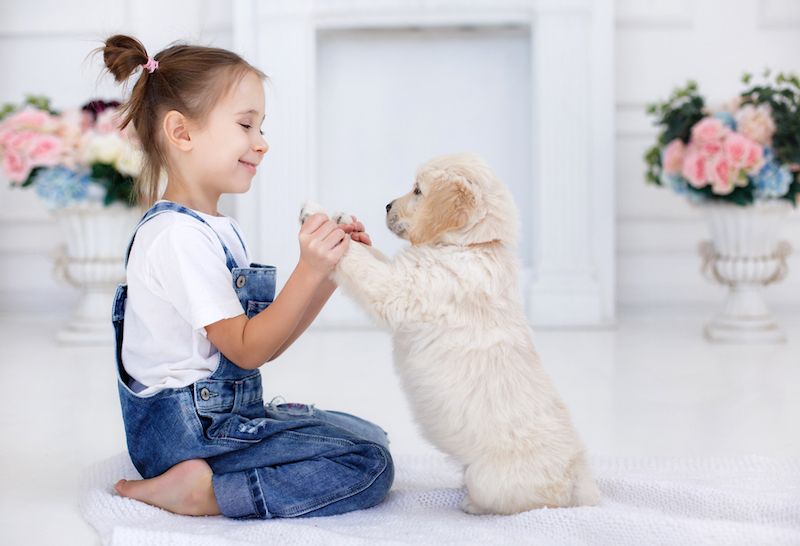Child's Best Friend: Kids Prefer Their Pets Over Siblings

Dogs may be man's best friend, but a new study finds that pets are children's best friends, too — more so than their own siblings.
The research does not suggest pets can replace siblings, but rather offers more information about how family pets can influence the development and well-being of children. Though the study looked at only 77 children in the United Kingdom, the findings add to a growing body of research about the role that pets play in people's lives.
In Western households, pets are almost as common as siblings, but according to the researchers, there are few studies on the importance of child-pet relationships. [In Photos: America's Favorite Pets]
"Anyone who has loved a childhood pet knows that we turn to them for companionship and disclosure, just like relationships between people," study lead author Matt Cassells, a psychiatry Ph.D. student at the University of Cambridge, said in a statement. "We wanted to know how strong these relationships are with pets relative to other close family ties. Ultimately this may enable us to understand how animals contribute to healthy child development."
To determine the bond between children and their pets, the researchers asked 77 12-year-old children — with one or more pets (of any type) and one or more siblings — about their relationships with their pets, as well as about their sibling relationships. The children's responses showed that they felt more satisfaction in pet relationships, with dogs receiving higher marks than other kinds of pets.
Beyond their feelings of closeness with the pets, the children also reported that they would talk and share secrets with their animals.
"Even though pets may not fully understand or respond verbally, the level of disclosure to pets was no less than to siblings," Cassels said. "The fact that pets cannot understand or talk back may even be a benefit as it means they are completely non-judgmental."
Sign up for the Live Science daily newsletter now
Get the world’s most fascinating discoveries delivered straight to your inbox.
Previous research has found that boys report stronger relationships with their pets, but this study found the opposite. The researchers found that girls reported more disclosure and companionship with their pet. Cassels said this could indicate girls interact in more nuanced ways with their pets compared with boys.
This study adds to the growing understanding of how pets have positive benefits on humans, said study co-author Nancy Gee, the human-animal interaction research manager at the WALTHAM Centre for Pet Nutrition.
"The social support that adolescents receive from pets may well support psychological well-being later in life," Gee said in the statement. "But there is still more to learn about the long-term impact of pets on children's development."
The results of the study were detailed in a paper published online Jan. 20 in the Journal of Applied Developmental Psychology.
Original article on Live Science.











